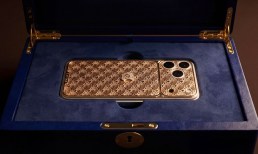When the world first encountered the brand in 2011, Dollar Shave Club didn’t have much more than an innovative idea for selling razors and a viral video about the concept. Pitched at men, Dollar Shave Club offered a simple choice: pay $10-$20 for razors at the store, or pay a buck or two a month and have them delivered straight to your door. Same quality, but 90 percent less expensive.
“The problem that we’re solving at the very basic level, and that we have been very focused on for the last couple years, has been that razors are really expensive in the store,” CEO Michael Dubin told PYMNTS in 2015. “It’s even a frustrating experience to go and buy them. You have to drive there. You have to park your car. You have to find the razor fortress. It’s always locked. You have to find the guy with the key.”
Dollar Shave Club came as a welcome change. Actually, Dubin noted, at the time it was too welcome. Shortly after that first ad went viral, their site crashed and they sold out of all their inventory in six hours.
Then they had to actually start mailing out orders – which turned out to be more arduous than anticipated.
“We were printing labels in the office and using the incredibly sophisticated ‘trash bag’ method for transporting them to our fulfillment center,” Dubin recalled. “It was an intense time; I mostly remember it in my nightmares.”
But they persisted – and in 2016, DSC was bought out by Unilever for a $1 billion.
Advertisement: Scroll to Continue
And while most brands might consider that a winning endpoint, and while another CEO might have ridden off into the sunset as a much richer man or woman, Dollar Shave Club and Michael Dubin are asking themselves a different question: How does the company become about more than just shaving?
Because though the commercials started off a little on the silly side – and have arguably stayed that way – Dubin noted at an industry event that the purpose is perhaps a bit bigger and more serious than the marketing materials would indicate.
“Dollar Shave Club has evolved from a razor once a month or every other month to sort of everything we need a couple times a year. We really want to solve those problems for guys,” he noted, adding that the firm’s goal is “to help guys take care of their minds and bodies so they can be their best.”
Being their best, from DSC’s point of view, means being more than just clean shaven. On top of razors, toothpaste and cologne, the brand will now offer deodorant sticks and wipes. The new products will start out as member-only offerings and roll out to the general public from there.
And from deodorant, the sky’s the limit – Durbin noted the brand is interested in any wellness category that affects men and their confidence. That might be skin issues, dandruff or the wrinkles they are seeing for the first time on their millennial faces.
Durbin noted that later this year, the brand is also going to reset its member profile to be more informative. “We want to know everything about the member; we want to know about his grooming concerns,” he said, noting that the core customer has changed. “Now, Dollar Shave Club appeals to customers whether they’re 20 or 70.”
Moreover, Durbin said, grooming is part of a bigger story in contemporary men’s lives, helping them develop into the type of person who wants to take care of themselves. To help push the mental part of their wellness mission, DSC has launched Mel Magazine, a separate editorial offering dedicated to pushing wellness content of particular interest to men.
“Men are looking for content that’s more thoughtful, that crosses some boundaries at this time of masculinity and boyhood,” Dubin said, adding that he’s trying to start conversations, but not in a preachy way. “It’s a delicate balance, but our goal is to start a conversation and let the world figure it out.”




